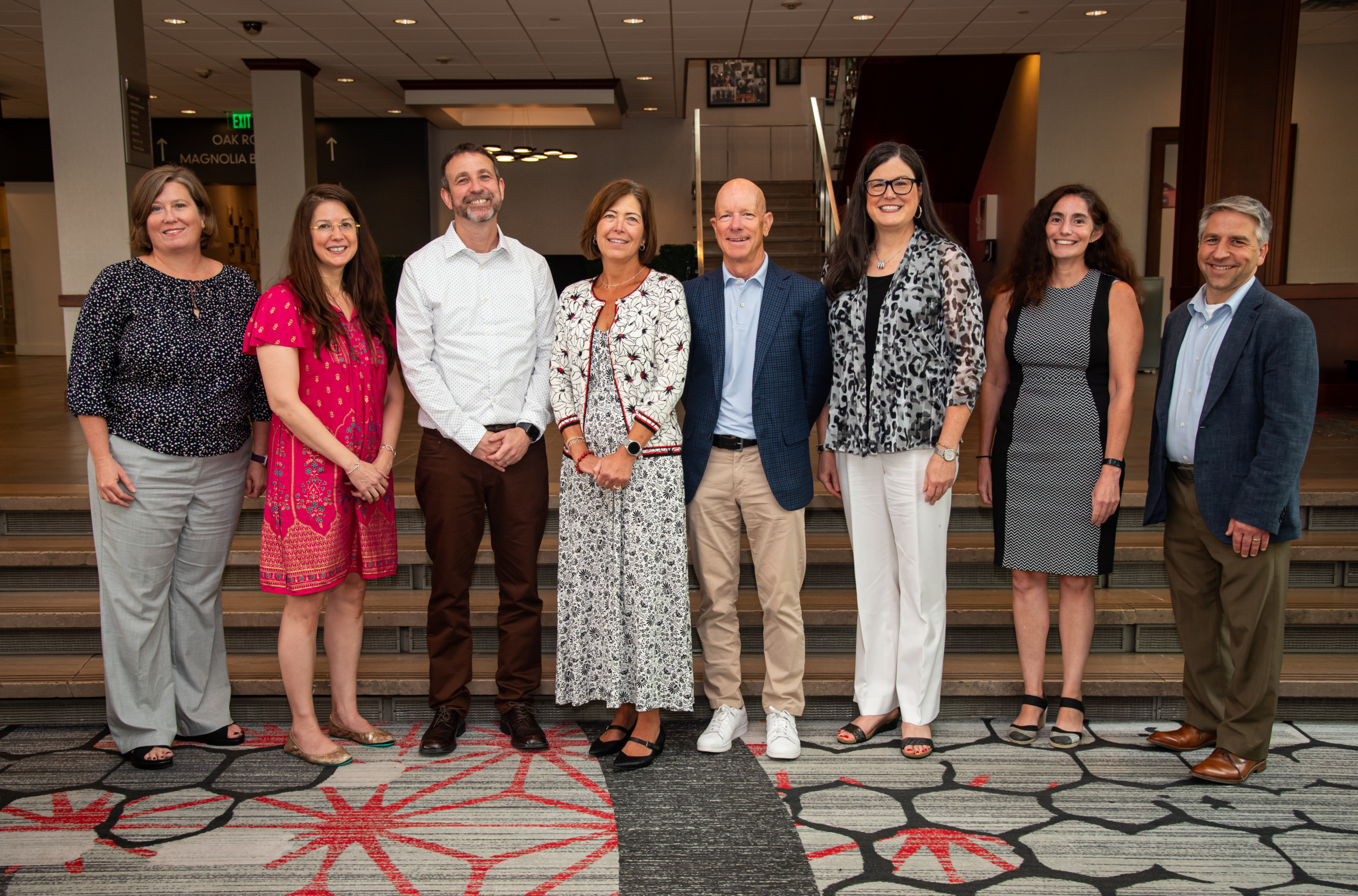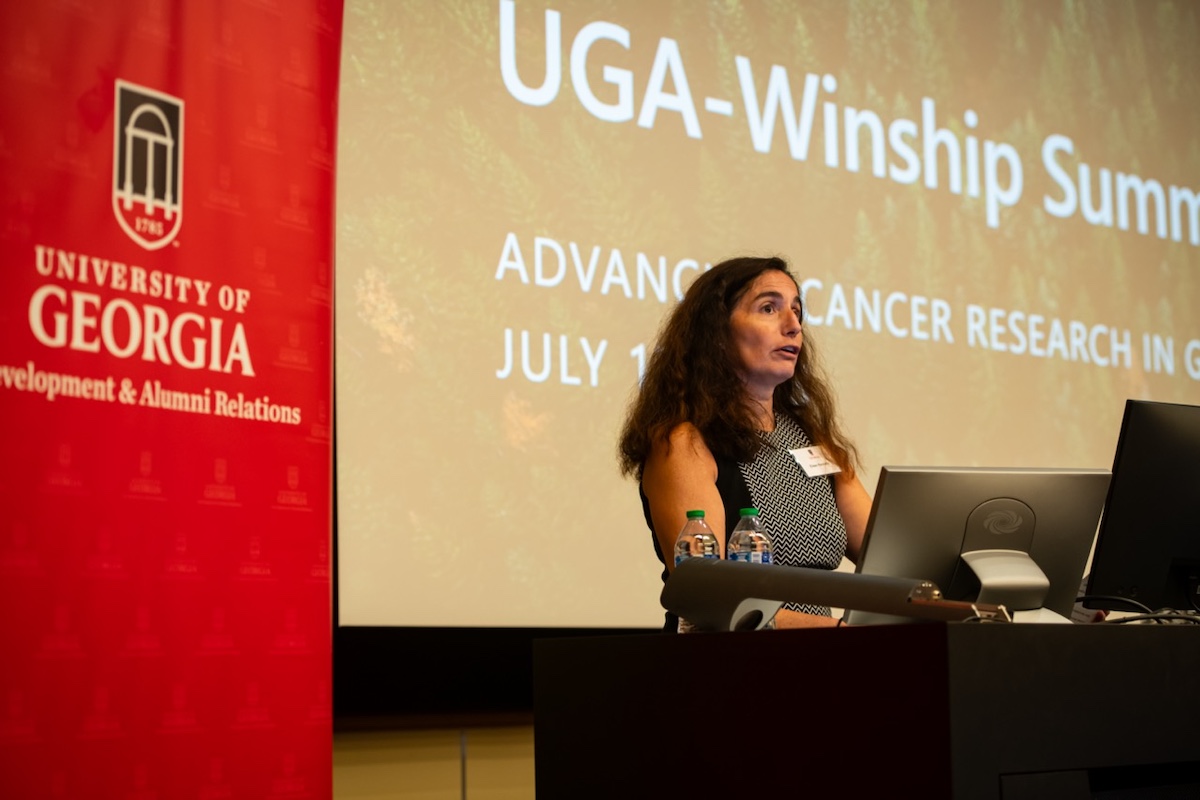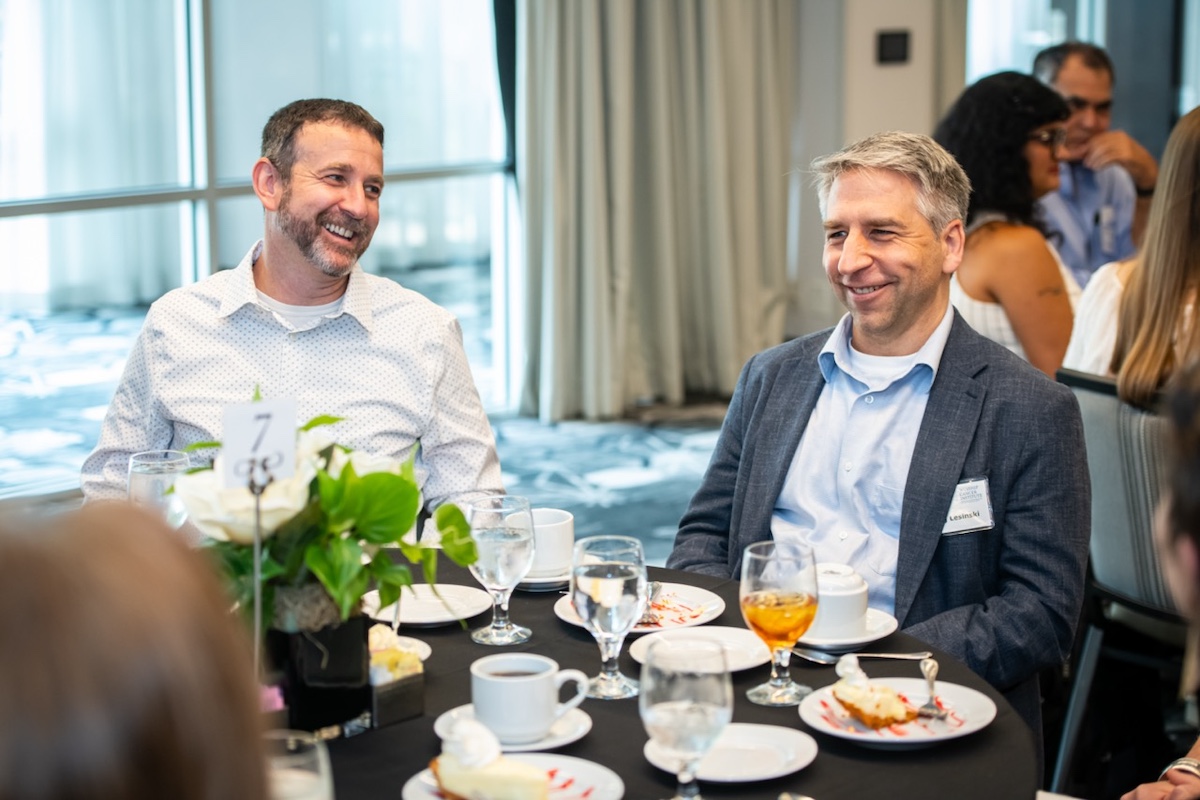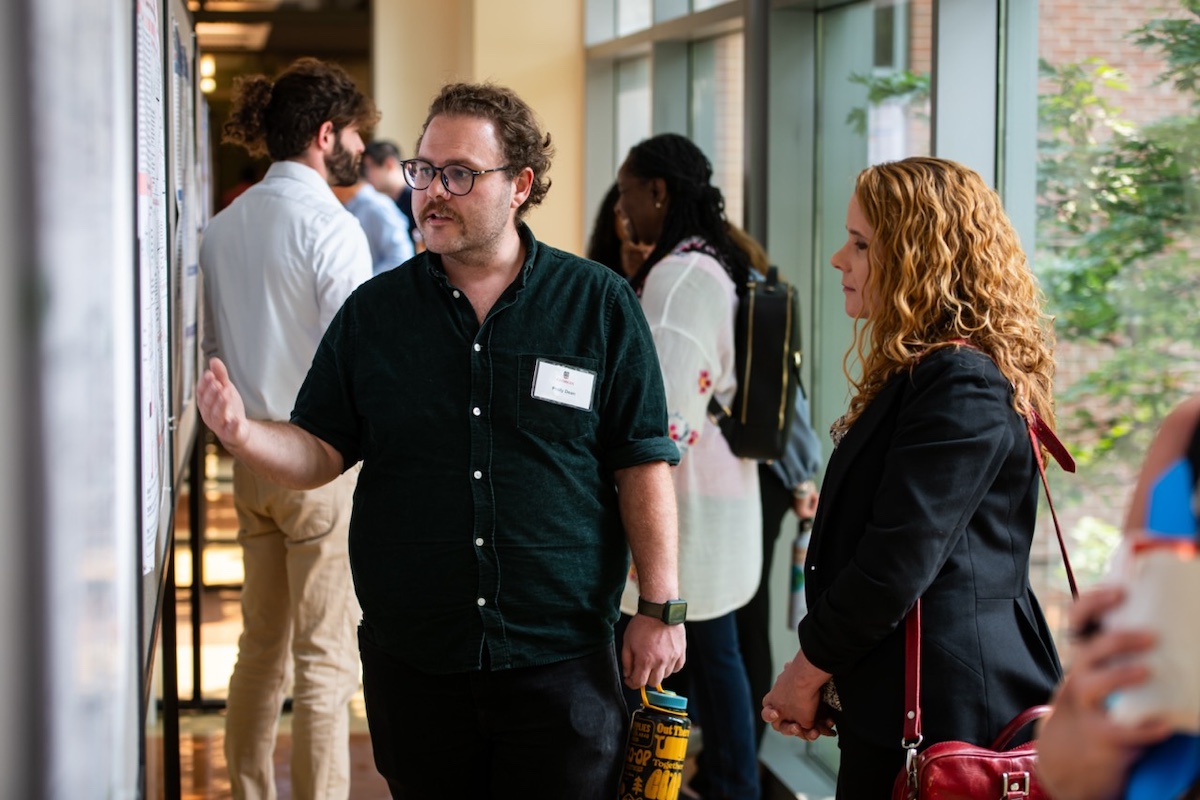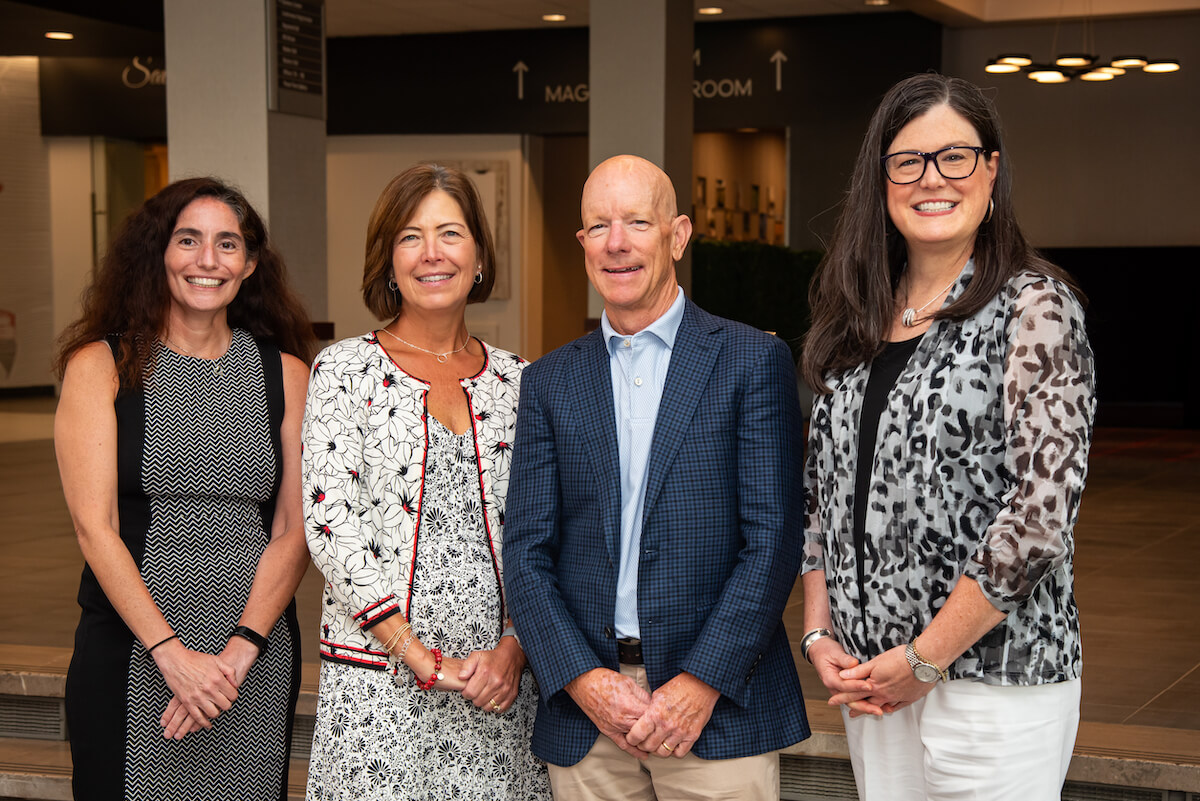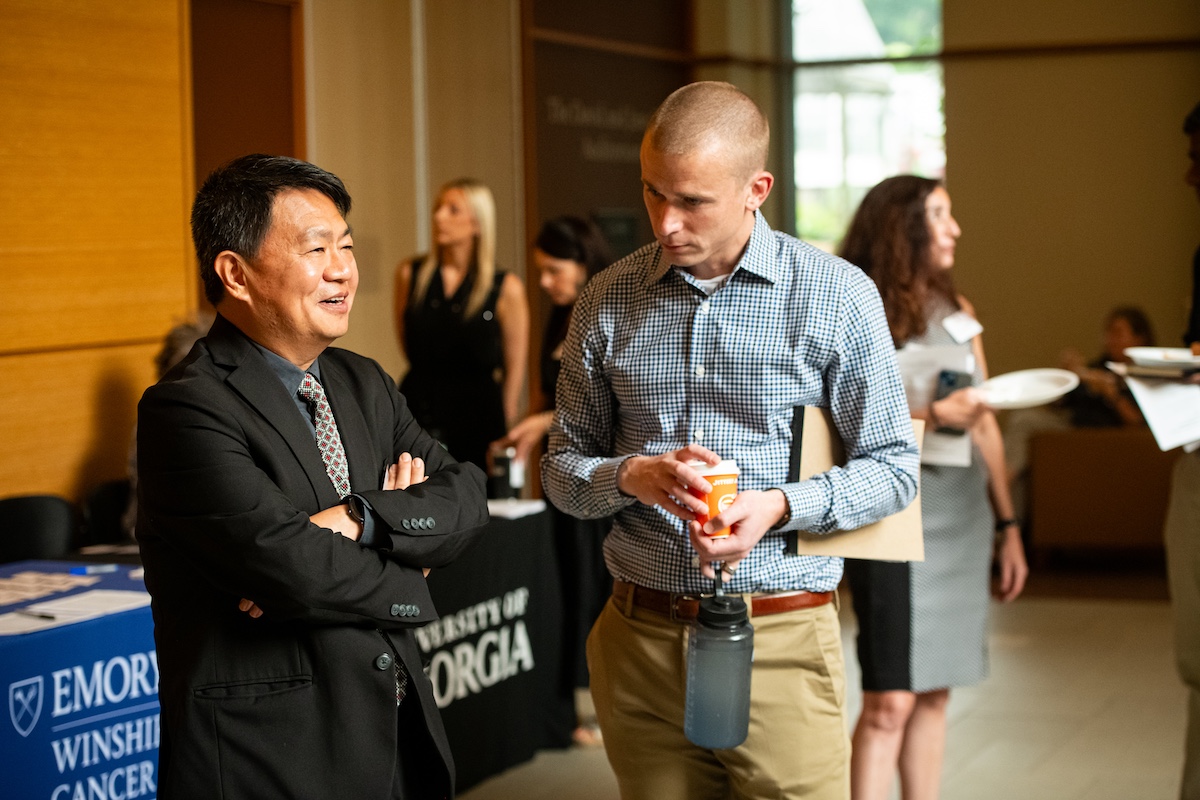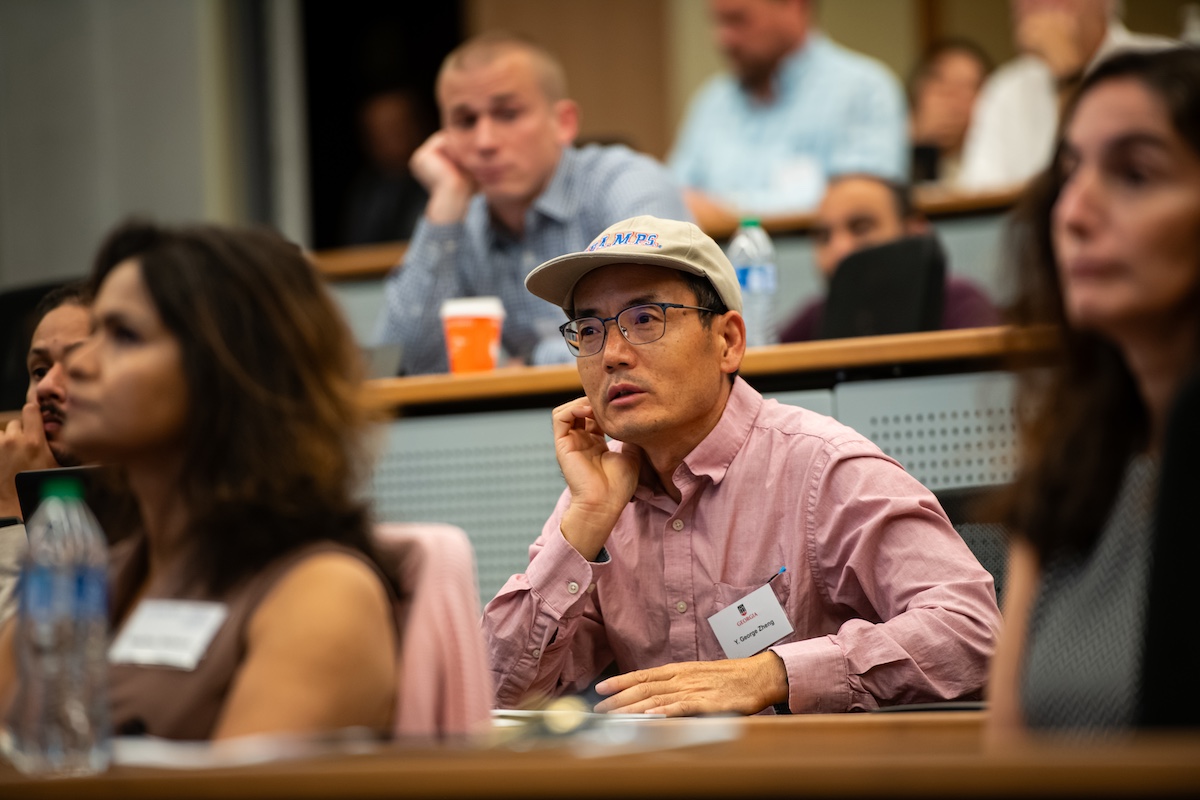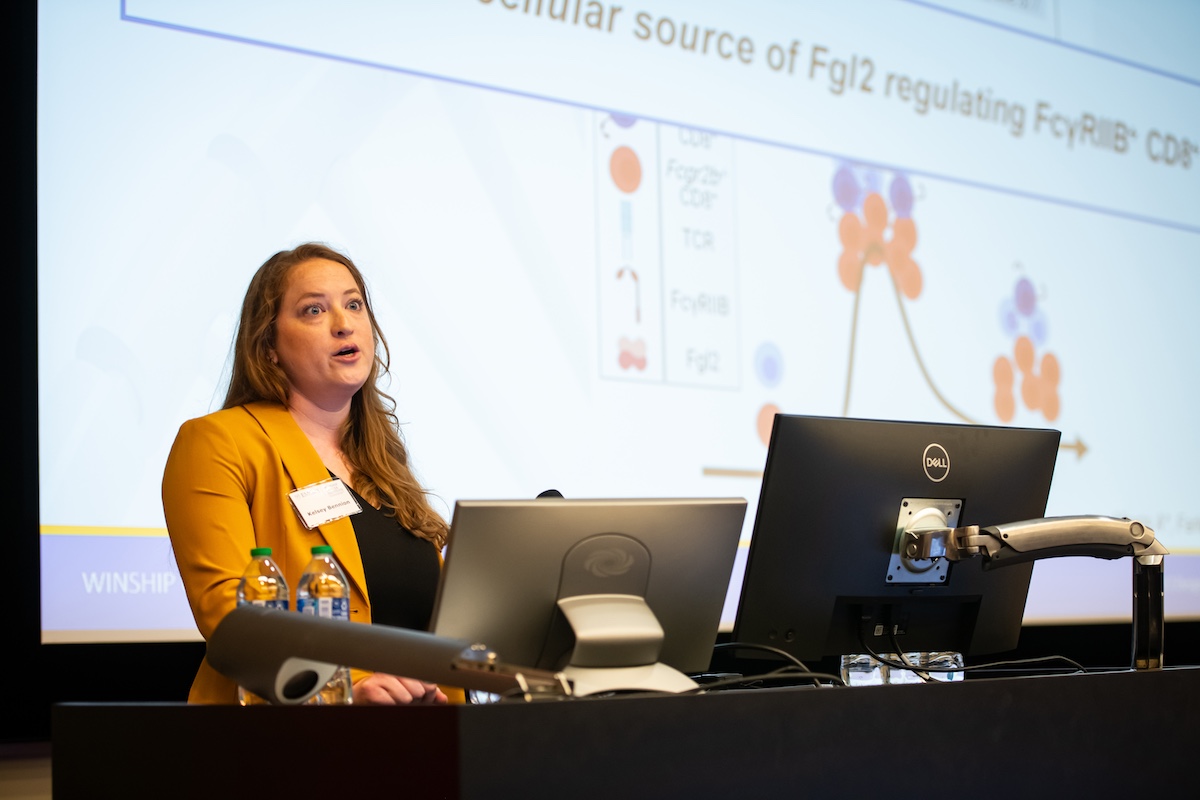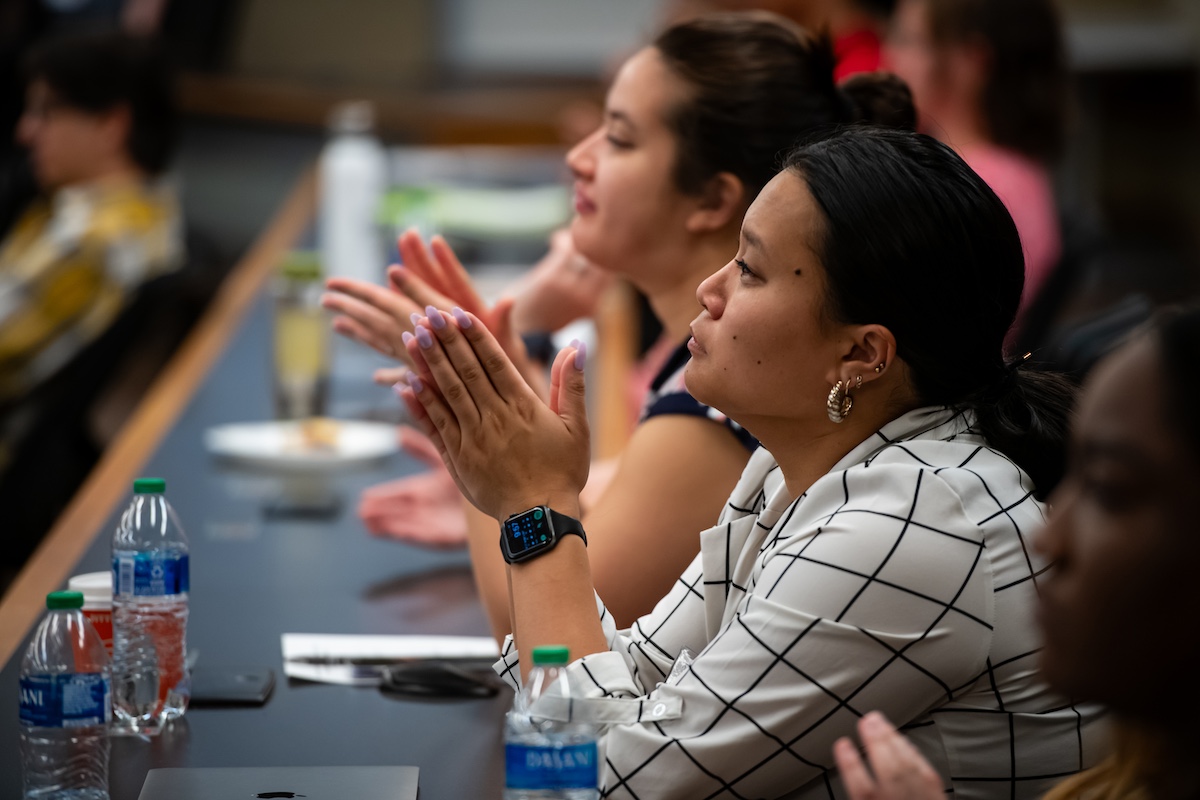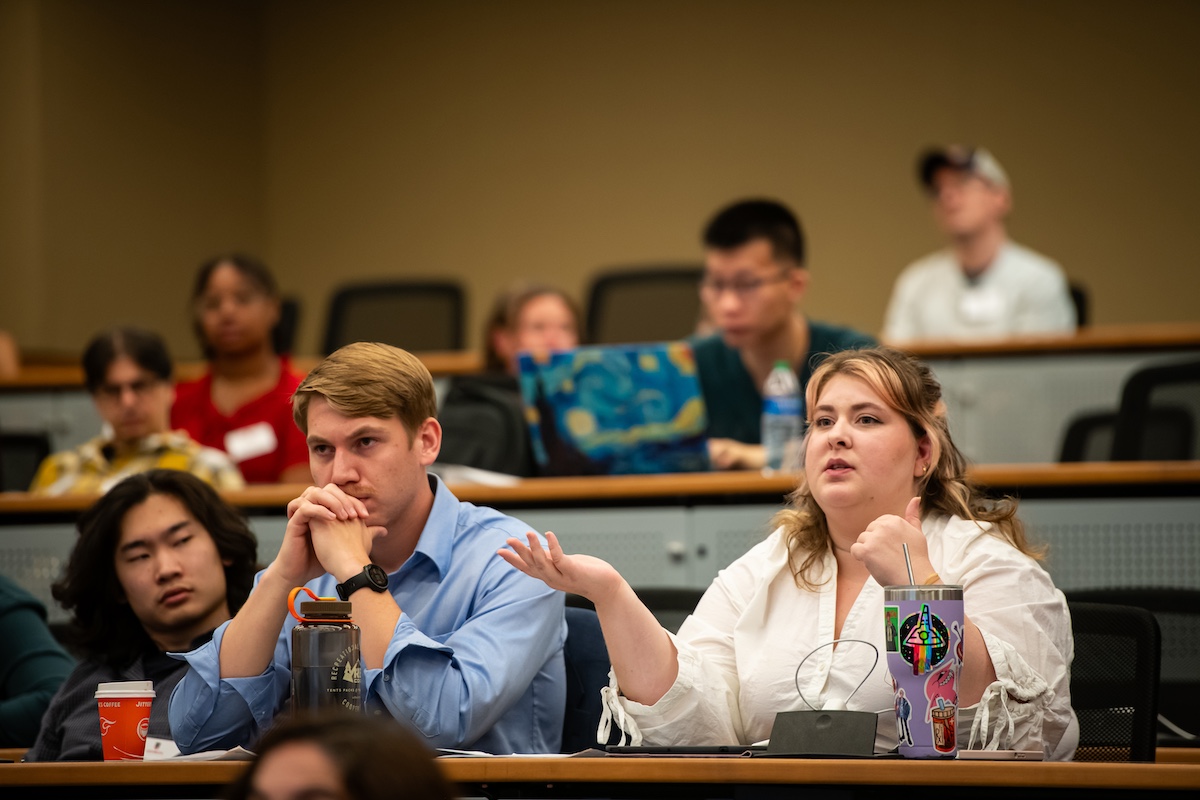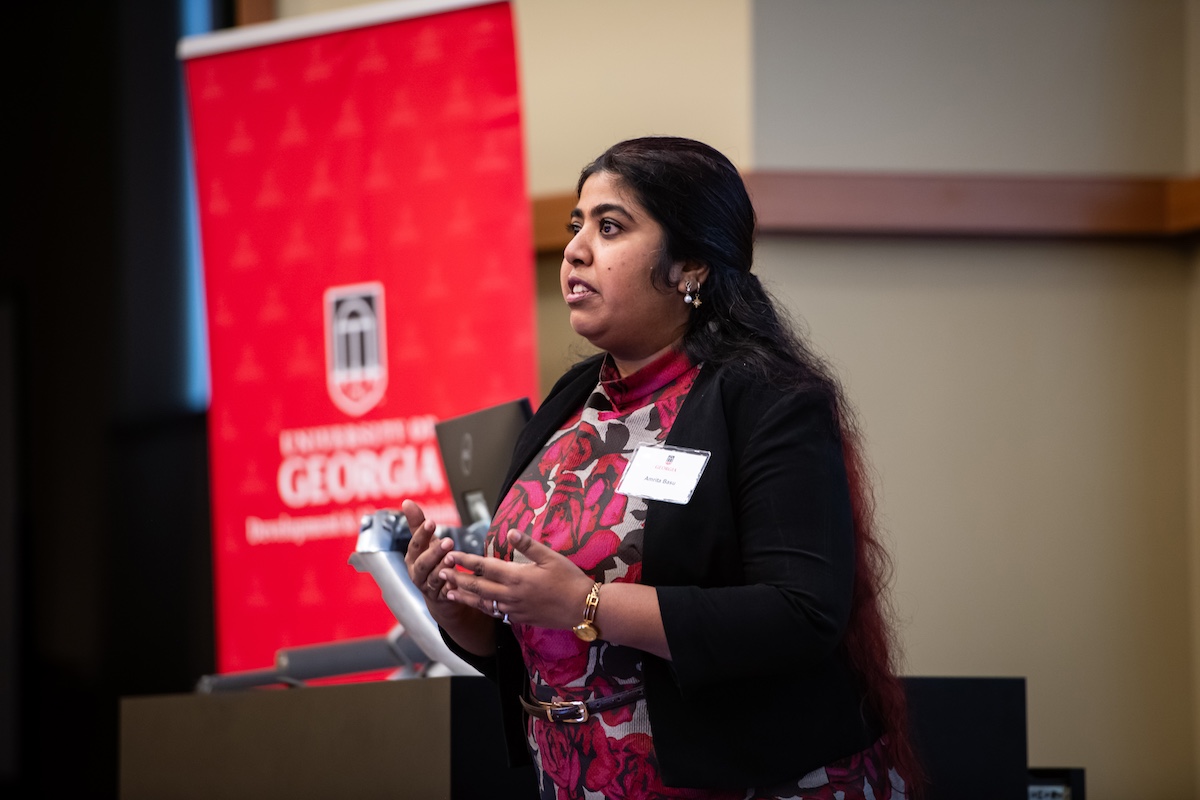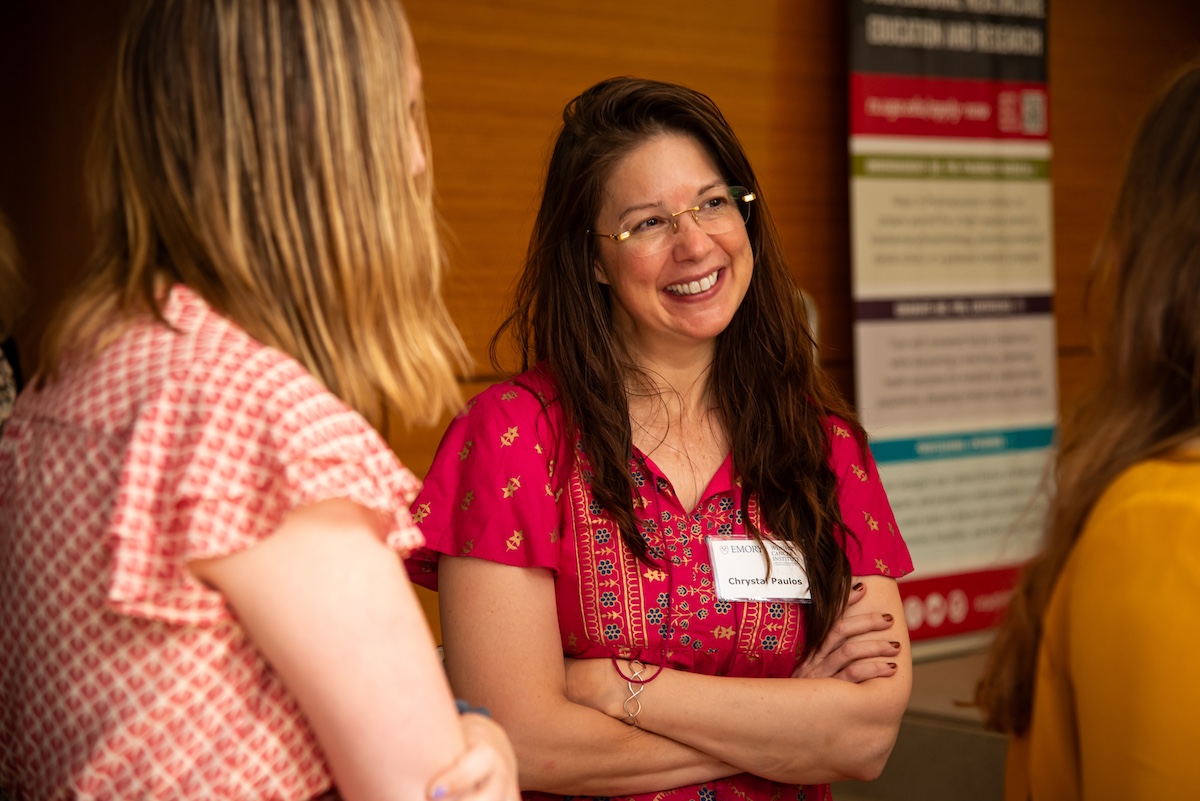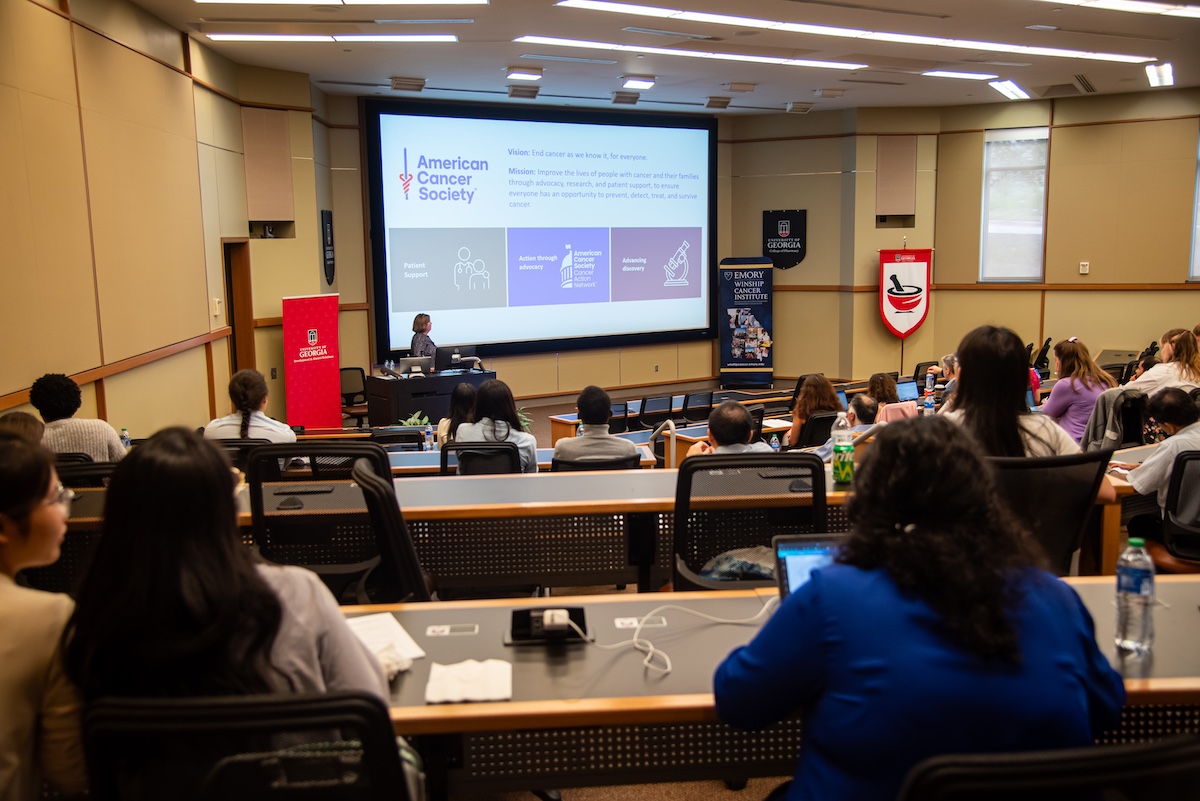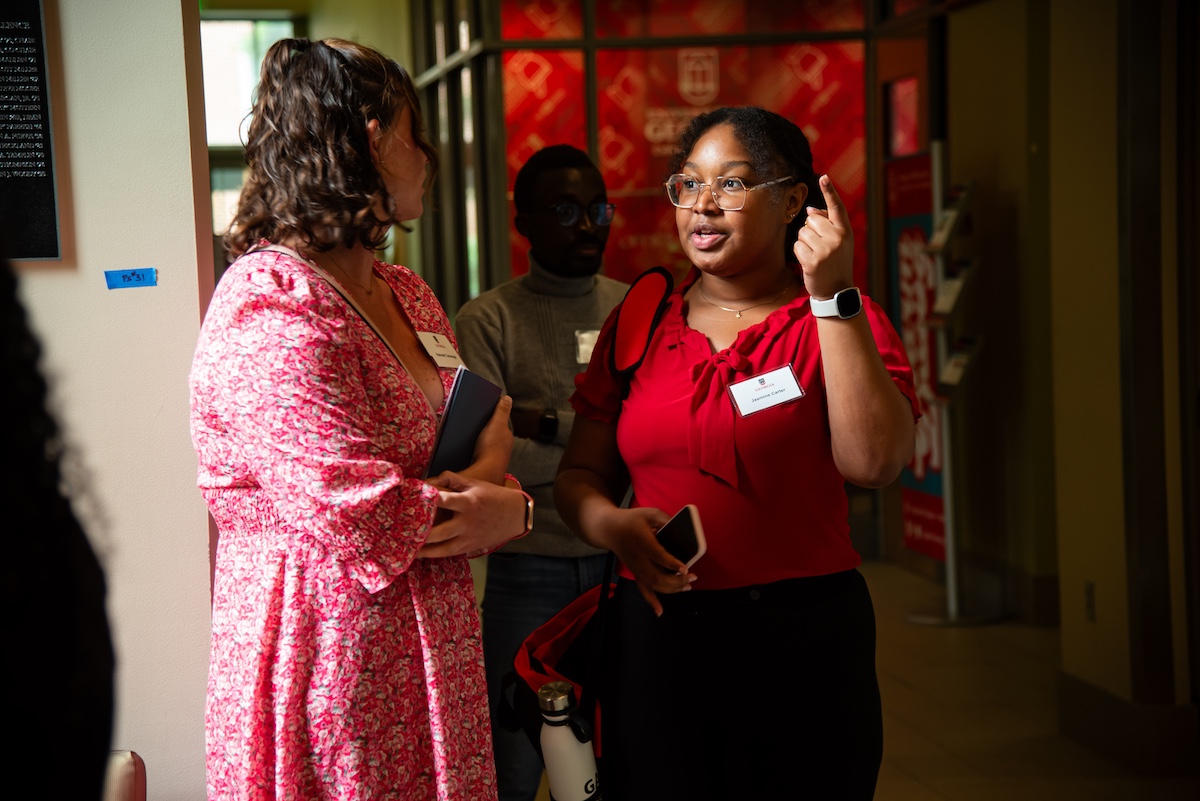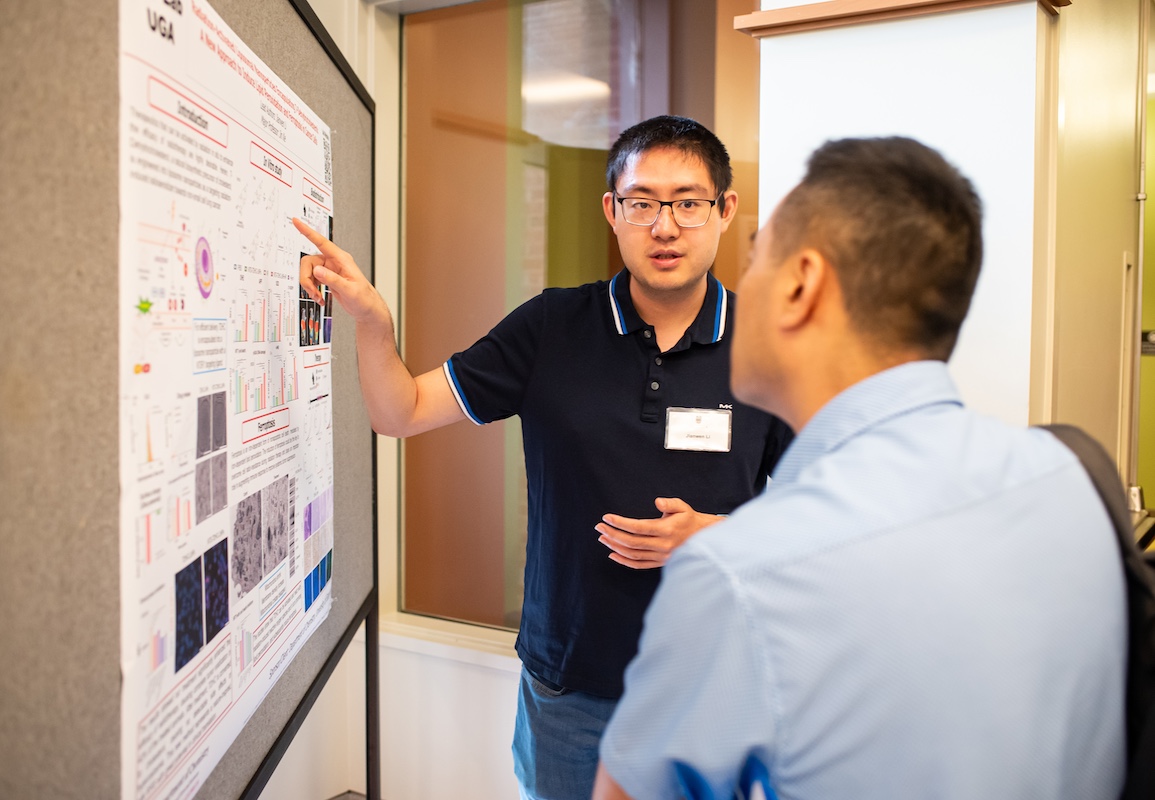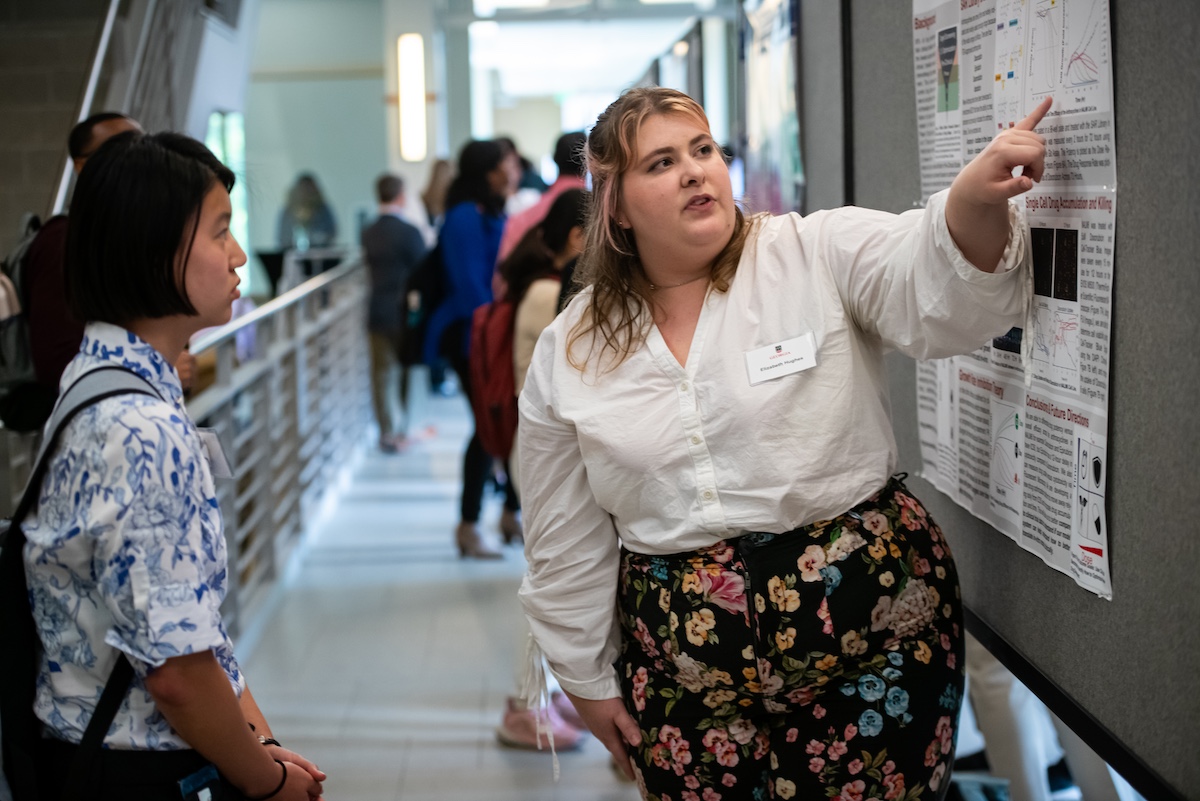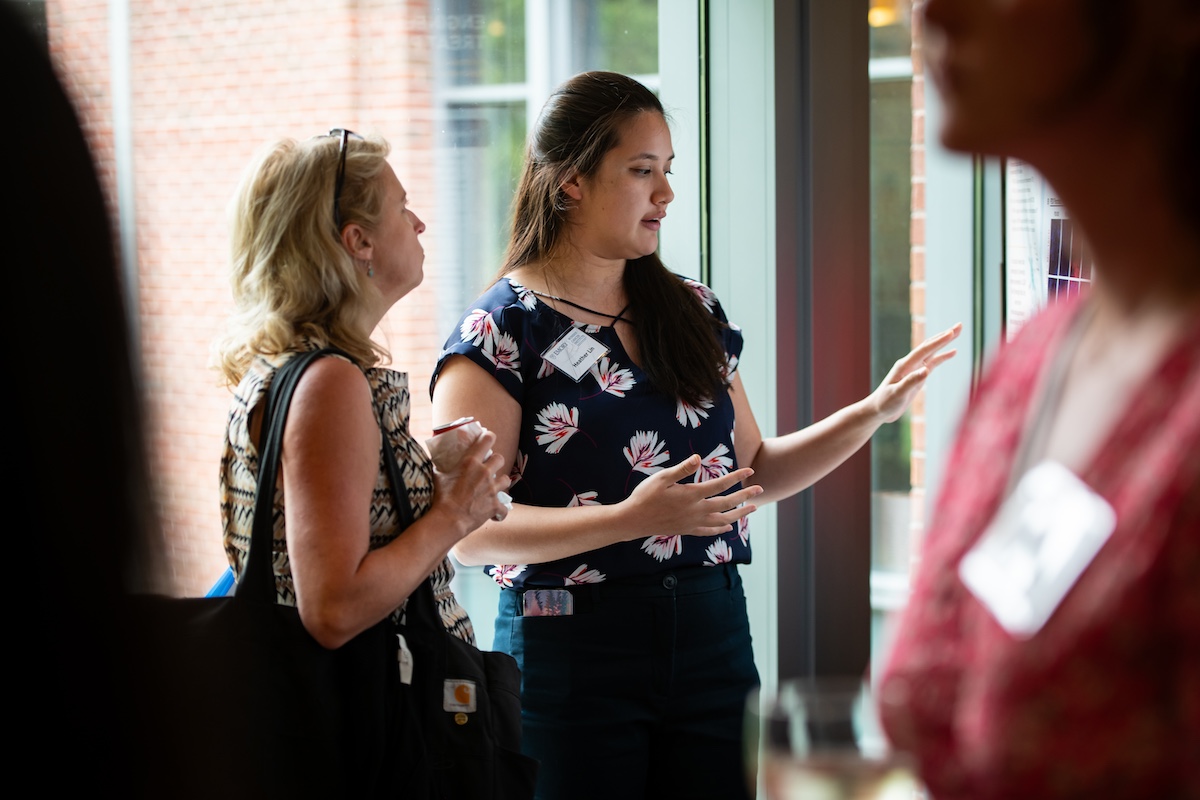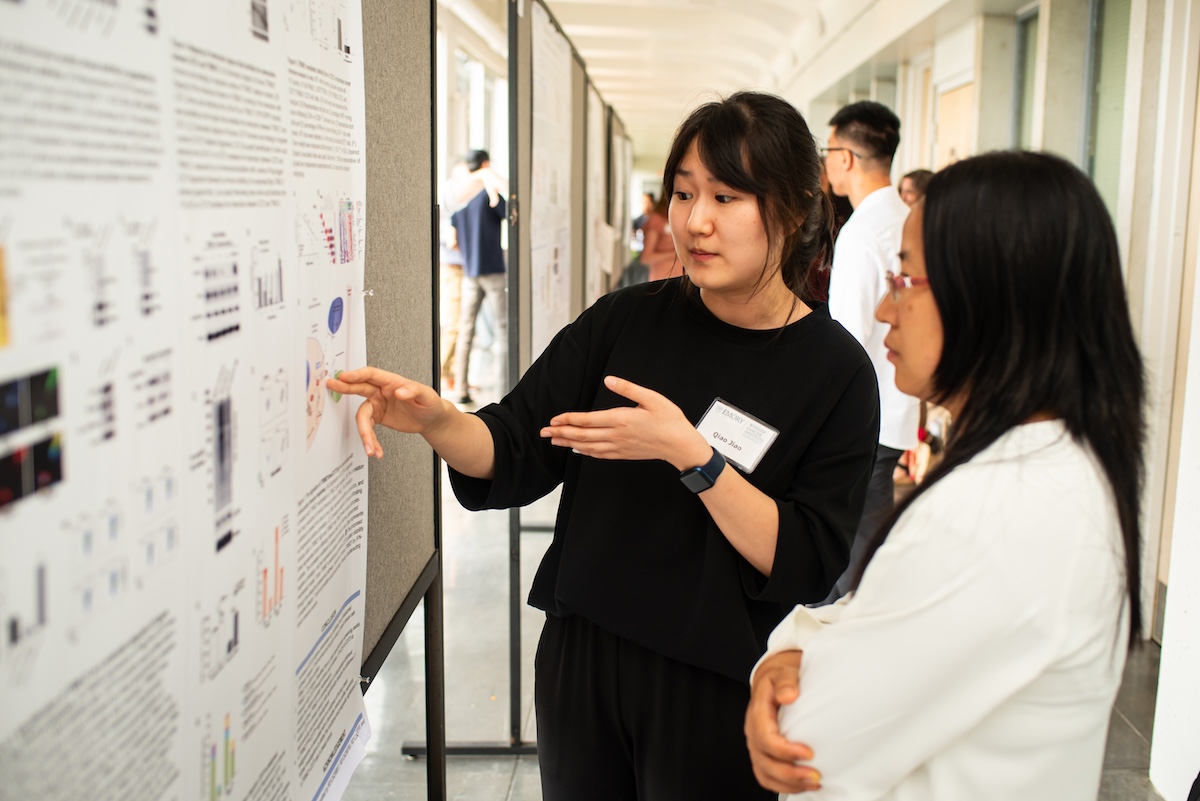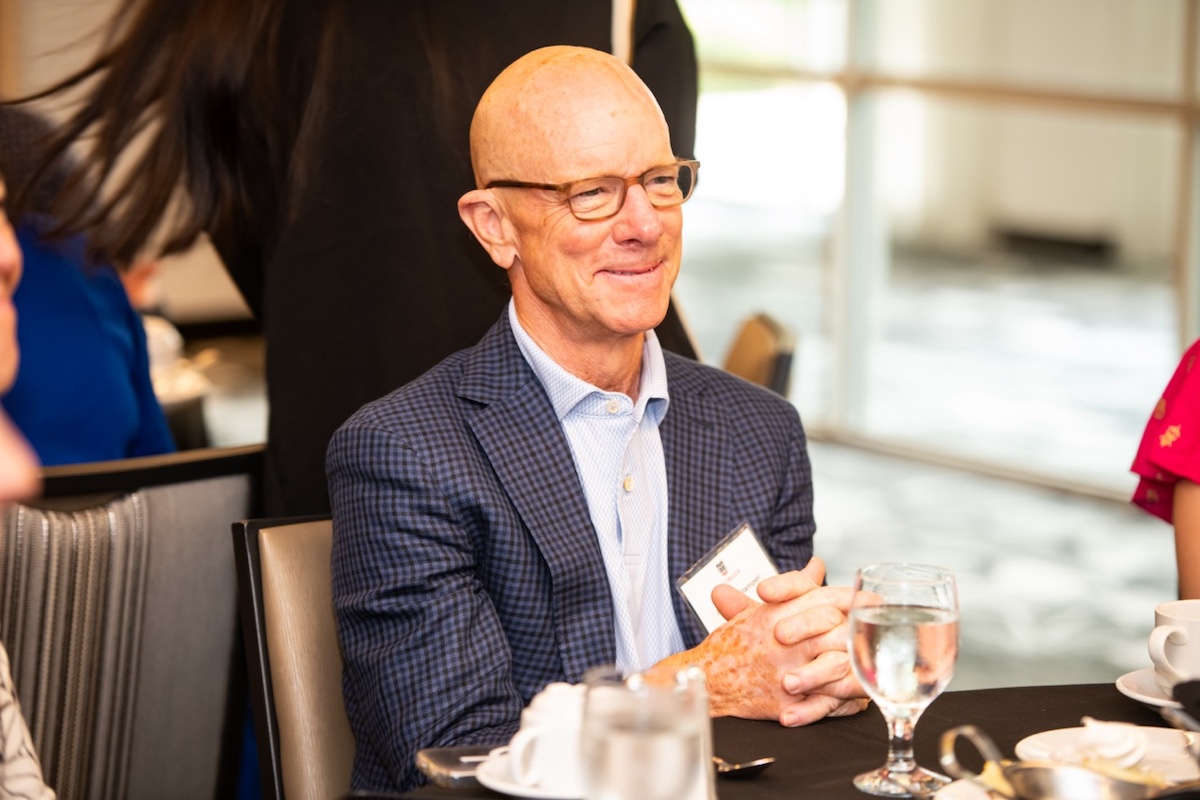By: Charles McNair
From a summit, a person can see a long, long way in all directions.
That’s the idea behind the 2023 University of Georgia-Winship Cancer Research Summit, hosted by UGA in Athens on July 17. The event brought together top cancer researchers from the UGA Cancer Center and Winship Cancer Institute of Emory University.
“The summit highlights the research strengths of two great cancer programs,” said Eileen Kennedy, director of the UGA Cancer Center. “Having a comprehensive view of research at both programs opens new vistas for collaboration in cancer prevention, diagnosis, and treatment.”
Kennedy’s fellow at Winship, Adam Marcus, deputy director of Winship Cancer Institute, says the summit brings ideas out of labs and into a shared environment that can spark collaboration in completely new ways.
“The spirit of the conference,” Marcus said, “is to put people together in a room who wouldn’t normally have a chance to interact. That drives new ideas and innovation that can someday make cancer a less threatening disease.”
From left to right: Nicole Lopanik, the summit’s keynote speaker and research program manager of extramural discovery science at American Cancer Society; Chrystal Paulos, Winship’s director of translational research for cutaneous malignancies; Adam Marcus, Kim Stamper, Richard Stamper, Kelly M. Smith, dean of the UGA College of Pharmacy; Eileen Kennedy, Gregory B. Lesinski, Winship’s associate director for basic research and shared resources. Photo: Justin Evans
At the summit, almost 100 participants—equally split among UGA and Winship doctoral candidates and post-doctoral researchers—exchanged ideas, heard talks from various cancer investigators, and learned about ongoing work through 40 poster presentations.
Keynote speaker Nicole Lopanik, program manager at the American Cancer Society, outlined research funding programs and opportunities for researchers seeking grants.
The summit also gathered researchers from far-flung campus research hotspots. For example, the UGA Cancer Center, which is virtual, comprises 16 different departments with 35 separate labs spread all over Athens. By involving researchers from a multitude of fields, the center can progress against cancer on many fronts: pharmacological, biochemical, genetic, and beyond.
“With our spatial orientation,” Kennedy said, “face-to-face meetings where people can discuss projects and innovations are really valuable.”
Private support powered the Cancer Research Summit
The generosity of a Bulldog couple made this UGA-Emory collaboration possible.
For them, it was personal.
In September 2014, doctors gave Richard Stamper (BBA ’84) grim news—a diagnosis of stage 4 melanoma and a prognosis, based on data, to live just 10 to 12 more months.
Richard and his wife Kim (BBA ’89) held onto hope. They agreed that Richard would enter a clinical trial at Emory where two immunotherapy drugs – Nivolumab (PD-1) and Ipilimumab (Yervoy) – were combined in hopes of discovering a way to ignite the immune system to find, fight, and kill the cancer cells in Richard’s body.
Today, nearly a decade later, the healthy and forward-looking Stampers show their gratitude to Emory and for their UGA experiences by underwriting annual UGA-Winship cancer research summits. The first, in 2021, was virtual. The 2022 summit, held in Stone Mountain, met live for the first time.
“Personal philanthropic support allows research centers to invest in ideas and people that would not be possible using federal money alone,” said Kennedy.
Marcus agrees. “The future of cancer research lives in high-risk areas with a long-term return on investment. It means investing in people and their ideas. As their careers grow, that investment comes to fruition in ways we can’t possibly predict.
“Personal giving can be a game-changer in areas where public funds simply aren’t possible.”
“A science fair… of geniuses”
Phillip “Philly” Dean, a UGA pharmacological doctoral candidate, earned special summit recognition for a poster illustrating his research: Impact of Microglial RGS10 Regulation of Inflammatory Mediators in the Glioblastoma Tumor Microenvironment.
In plain English, it means brain tumor research. Just what the doctor ordered.
“The summit is great for understanding other research going on around us,” Dean said. “And it’s great to get everyone working on cancer together in one room to hear their techniques and approaches.”
The summit also means connections.
“I’m almost done with my Ph.D.,” Dean said, “and I’m looking for jobs and opportunities to present. It’s wonderful to find possible connections that might help us all make bigger strides and discoveries through research.”
Students weren’t the only ones seeing possibilities at the summit.
“Winship is more focused on clinical studies than other research,” said Marcus. “But I know UGA is making investments in pharmacology approaches and new drug development. So, I got ideas on how we might be able to take new therapeutics from UGA’s labs and move them into our clinics to possibly come up with treatments no one ever dreamed of before.”
Kennedy also saw new possibilities at this year’s summit.
“There’s a lot of world-class research happening right now at UGA,” she said. “We need to push outside the box and take risks and new directions. We can really use help from private donors to fulfill these types of breakthrough products.”
As notable donors, the Stampers wake up every day enthusiastic about supporting the summit and the collaboration and connections that result from this annual event.
“It’s like a science fair in high school,” Kim said. “But a science fair of geniuses.”
Richard added that, “There’s no question supporting UGA is rewarding for the soul.”
Through their re-engagement at UGA as alumni, Richard and Kim echoed,
“Many alums don’t realize that there are almost limitless opportunities to support UGA in so many areas. And, like the cancer research summit, at UGA you know where your donation is going. You witness it. You can see it with your own eyes.”
For the Stampers, Kennedy, Marcus, and Dean, what they see is the view from a summit—the results of hard work and the satisfaction of progress. The 2023 cancer research summit is a powerful example of how personal donations tangibly impact cancer research and other UGA projects.
But from on top of the mountain, you also see the many hills left to climb. This drives the Stampers to sustain their support and the researchers of UGA and Winship to work together long after the summit. They all see the potential of new ideas and discoveries that will change lives, create healthier people, and build a better tomorrow.

